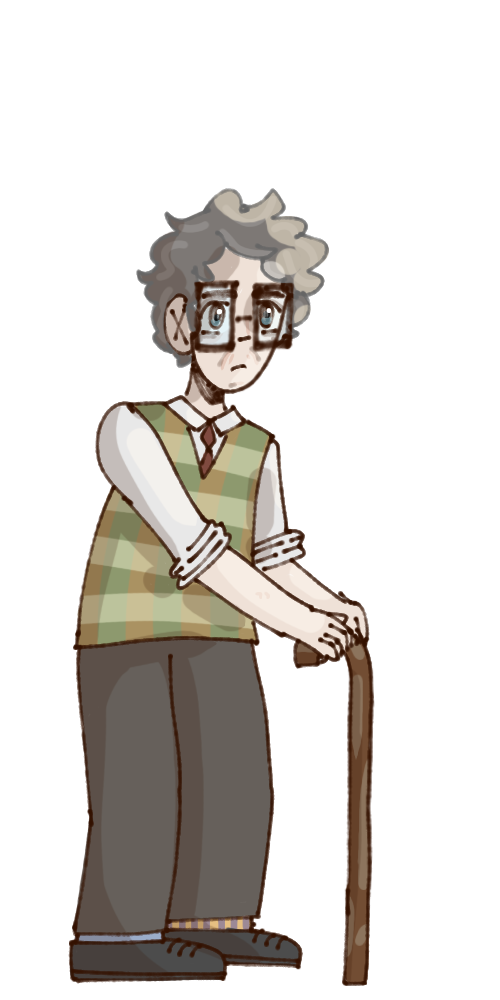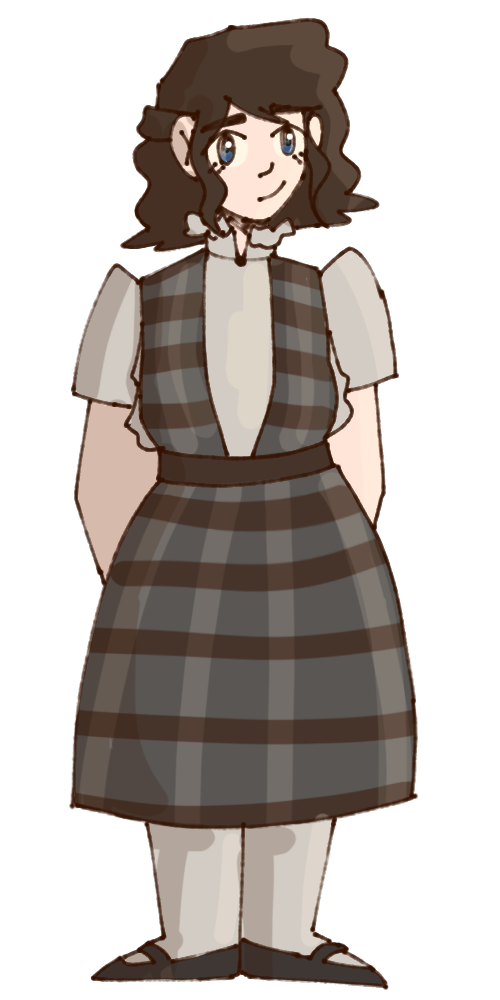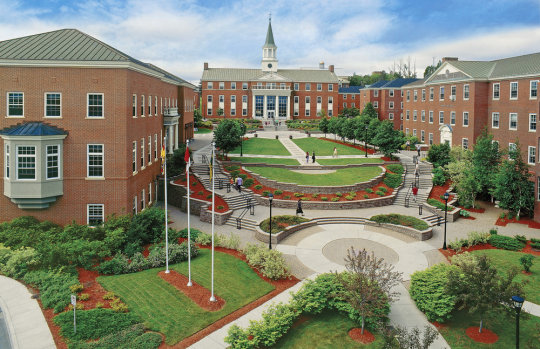#cheapest university in canada
Text
The University of Northern British Columbia is the cheapest university in Canada, with tuition fees of just $12,000 per year. Other affordable universities in Canada include Memorial University of Newfoundland, University of Manitoba, and University of Saskatchewan. These universities offer high-quality education at a fraction of the cost of universities in the United States and other developed countries.
Contact us on 1800123000011
0 notes
Text
Nursing Courses In Australia At Edinway
If you're looking for top-notch nursing courses in Canada or nursing courses in Australia rudra castings has got you covered.Our comprehensive programs provide students with the knowledge and skills needed to excel in this rewarding field.Whether you're a recent high school graduate or a professional seeking to advance your career we have programs tailored to meet your needs.Our experienced faculty members are passionate about teaching and are dedicated to helping students succeed.With state-of-the-art facilities and innovative teaching methods rudra castings is the perfect place to begin your nursing journey.Don't wait enroll in one of our nursing courses today and take the first step towards a fulfilling career.
#nursing course in australia#nursing course in canada#bsc nursing in canada#nursing course in new zealand#diploma of nursing adelaide#nursing colleges in adelaide#bsc nursing in adelaide#universities in sydney for nursing#2 year nursing degree uk#study nursing in australia#nursing course in usa#study nursing in uk#msc nursing in canada#diploma in nursing in canada#bachelor of nursing in australia#nursing course in uk#bsc nursing in uk#bsc nursing in australia#msc nursing in uk#cheapest nursing courses in australia for international students
0 notes
Note
Being disabled in Canada is so awful. I know it’s shit all around the world, and Canada is not unique in that. But god. So many people make jokes that Canada is better than America, that we have “universal healthcare”. Nobody understands that the universal healthcare is the least effort and cheapest thing possible. That the Canadian government is actively and violently hostile towards disabled people. That Canada isn’t “more progressive” than the states. That anti-indigenous racism here is soul crushing, evil, and incredibly common. I’ve had a doctor suggest MAID to me when I was telling her about my chronic pains. Canada fucking sucks.
<3
21 notes
·
View notes
Text
Ride The Cyclone Knock Knock AU:

(Click for better quality)
The Choir finally moved out of Uranium! Unfortunately, the cheapest university they could find didn't have dorms. Trying to find a house to fit six people (plus with wheelchair access) is harder than you'd think. By an insane stroke of luck, Ocean receives a phone call from an old man named Ezra Lamb, who was happy to let them stay in his huge mansion for cheap.
While staying there, they soon discover a myriad of mysteries and abnormalities. A series of strange noises, gradual disappearances, a wooden girl named Penny who Mr Lamb claims to be his daughter, and a whole lot of rats.
(Disclaimer: I have no clue how University and College work over here, let alone in Canada, so this probably isn't accurate, but the Uni stuff isn't that important in this AU)
Ocean O'Connell Rosenberg:

. She / Her
. Maths major (She's currently having a breakdown and doesn't know what to do with her life ❤️)
. Burnt out gifted kid - probably needs therapy
. Less of an outright bitch now, but sometimes still says the wrong thing by accident.
. Actually Constance's best friend
Noel Gruber:

. He / Him
. Studying English Literature (until he can move to a Uni that specialises in Performing Arts)
. He sometimes talks about Monique with Savannah, who in return talks (through a text to speech device, or he sometimes writes it down if she needs to do a diagram) about her Alien cat OCs.
Mischa Bachinski:

. He / Him
. Studying English Literature with Noel (So Noel can take his notes)
. He still does music on his YouTube channel
. He barely ever goes to class, since he's too busy working to get enough money to travel to Ukraine and meet Talia. Noel takes notes for him.
Ricky / Savannah Potts:

. She / He
. Studying Graphic Design (She finds it slightly boring, but it was the only remotely creative subject this Uni does)
. He goes equally by Ricky and Savannah, Ocean and Mischa mainly use Ricky, Noel and Constance mainly use Savannah
Constance Blackwood:

. She / Her
. Studying English with a minor in Botany
. Constance is the only student who calls Penny by her name, rather than Jane Doe
Penny Lamb / Jane Doe:

. ??? / ??? (Everyone uses She / Her - except for Ocean, who sometimes says It)
. She's been in the house for so long she's forgotten her own name, so most of the others call her Jane Doe
. Her wooden limbs mean she is mainly bedridden, and can hardly walk, mostly relying on Ezra or the rats to bring her food
Ezra Lamb:

. He / Him
. He plays the role of the landlord (minus being played by Hercule Poirot)
. Claims Penny is his daughter, of course, she's actually his sister
. He sometimes just… stares at people. No one knows what that's about
Virgil:
(I had to cut his drawing out to put the lineup at the top rip)
. He / Him
. One of Penny's rats. He's been around the longest, so he's her favourite
Karnak:

(Design inspired by @timegays 's human Karnak)
. He / Him
. A nearby shopkeeper and amateur fortune teller who's obsessed with the paranormal
. His corner shop is called "The Amazing Karnak's"
. He informs the students of the significance of the legends surrounding the house, specifically to do with the rats
Penny Lamb:

. She / It (Turns out Ocean was right)
When she was only 16 years old, Penny grew very, very ill. As orphans, Penny, and its little brother Ezra had nowhere to turn after running away from St Cassian Boarding School. Fortunately, they found an abandoned manor house, where Penny rested until she would get better.
She didn't get better.
Due to the siblings' distrust of modern medicine, Ezra refused to seek a doctor for his sister, besides, he knew they'd be sent back to St Cassian's. Instead, he looked after Penny, and became its soul caretaker.
One day, whilst he was playing in the garden, he found a rat with luminescent red eyes. Excited, he showed his sibling the find, and named the rodent Virgil.
Over time, Virgil and Penny became inseparable, and when the latter's limbs started turning to wood… well, Ezra was just happy he could take care of his sister daughter… forever.
Ships:
Probably none will be canon to this AU. I might keep Ocean's crush on Ricky and Noel's crush on Mischa, and maybe if my finger slips I'll add Sugarsheep… we'll see how it turns out.
#ride the cyclone#rtc#rtc musical#knock knock au#ocean o'connell rosenberg#noel gruber#mischa bachinski#ricky potts#savannah potts#jane doe#penny lamb#constance blackwood#ezra lamb#legoland#legoland play#rtc au#rtc art#oh my god this took forever#im so proud of it#please appreciate my silly artwork#(also ive made these into a lineup drawing that I might post as some point )#idk#the amazing karnak#virgil the rat#doctor who au#i edited it so the lineup is at the top#so rip virgil's drawing#i finally learnt how to do cuts! im learning so much today#rtc knock knock au
58 notes
·
View notes
Note
FREE TUITION??? dangg I'm so jealous xD. The cheapest college I've found here is 3.2k a year (around 2.2k a year in euros?). if I spoke/understood italian and/or german I'd def consider doing it, but from what I've seen a lot of schools require multi-language proficiency?
Canada is very not great language wise as school only covers english and/or french, and honestly doesn't really acknowledge the existence of other languages tbh. (Although in the city I live there's a lot of people that speak manderin and what I think is arabic)
anyways thanks for responding to these I know they don't really fit your blog theme
That's one of the only good things 😭
2k is also what you pay at my uni if you have a high isee! there are more prestigious universities such as bocconi where tuition is 14k per year but they're more of an exception, 2k is usually the maximum.
Most unis offer degrees in english so knowing italian is not a must!! I don't know about the multi language proficiently tho, i have to admit.
Thank YOU for the asks! I love hearing what it's like in other places so i enjoy these conversations ^^
3 notes
·
View notes
Text
"Late in 1926 Ernest Victor Sterry had found himself out of work. At loose ends, he decided to write and publish a newspaper to spread rationalist ideas among his fellow Torontonians. He gave it a slightly misleading title: The Christian Inquirer: A Publication Directed to Furthering the Modernist Movement. The first number was alliteratively described as “A Pithy, Popular Presentation of Profound Problems Perplexing the People.” Sterry intended to follow it up with more issues, but that was not to be. The purpose of the paper, he wrote, was to further the populist mission of rationalist education:
to provide in the cheapest form the reviews and arguments and demonstrable facts usually kept more or less concealed from the mass of the people by the aristocracy of intellect.
...
Sterry began distributing the first issue of his paper free of charge that December, in time for Christmas. He made a point of giving copies to members of Toronto’s elite in person. He wandered the halls of the provincial parliament and handed copies directly to G. Howard Ferguson (the premier), W.H. Price (the attorney-general), and Charles McRea (the minister of mines.) He visited the office of crown attorney Eric Armour to give him a copy, and left papers at every other office he could. Sterry also visited Toronto’s city hall and delivered copies personally to each of its various departments. He then distributed the paper to students at McMaster University, a Baptist institution then in Toronto. He later estimated that he had given out at least five hundred copies of the Inquirer. He asked each person he met while distributing the paper to read and critique it. While everyone seemed friendly enough, he was disappointed by the lack of thoughtful responses.
There were only two advertisments in the first issue of the Inquirer, both from fellow unbelievers and members of the local rationalist organization. These were A. Newton, who offered “general house repairs,” and Ethelbert Lionel Cross, a barrister [and the first practicing Black Canadian lawyer in Toronto.] It was in fact fortunate that Sterry knew a lawyer. On 10 January 1927 he was visited at his office by three police officers and arrested. Accompanied by Cross (whose office was in the same building), he was taken to Inspector McKinney of the Morality Department and charged with blasphemous libel.
...
The defence of freedom of speech as a principle attracted a mysterious group of potential benefactors. On 14 January the [Toronto] Evening Telegram reported that “a sympathetic source” had offered Sterry the services of “one of the most eminent criminal advocates in this province.” [Lionel] Cross’s insistence on acting as senior counsel had, however, scuttled the deal. The next day Cross told the Star he wished to set the record straight. Certain local parties had indeed approached Sterry. They had told him that “they did not approve of his views yet they were wholly out of sympathy with what they regarded as a form of persecution and … were prepared to finance his defense.” They also offered legal counsel who would “collaborate” with Cross. But Cross felt that this collaboration amounted to a takeover of the case by others, which would have put him in the position of betraying the cause.
Just who were these potential benefactors? Neither Cross nor the Toronto newspapers specified. An article in the Winnipeg Tribune of 13 January, however, may shed light on the question. Entitled “Communists to Fight for Free Speech,” it reported that “the Communist Party of Canada is prepared to assist Victor Sterry … although it has no interest directly or indirectly in the Rationalist movement.” John MacDonald, party secretary, stated: “We are ready to take part in a fight for free speech and a free press if the police press the charge.” Thus it is possible that it was the Communist Party that had offered assistance and been rebuffed by Cross. It is also possible that the sympathetic group represented other religious minorities such as Unitarians or Jews, or that they were liberalminded Christians who disliked the blasphemy law. In any case, Cross seems to have felt that their lawyer would have misrepresented Sterry’s position, while he as a fellow rationalist could handle the case more appropriately.
There were also rumours of help from further afield. On 12 January, the Evening Telegram suggested that a coalition of Chicago freethinkers had discussed enlisting Clarence Darrow in Sterry’s defence. The next day Cross told the Star that he had received a telegram from New York offering $10,000 and Darrow’s assistance. Ten days later William Styles of the RSC [Rationalist Society of Canada] was asked if the famous American was coming. He responded that “the story was largely a newspaper concoction,” continuing, “if Darrow does come, he will come as junior counsel to our own Lionel Cross.” But he added that it was a possibility, since there was an organization in the United States that had paid Darrow’s expenses when he fought similar cases across North America. (This was likely a reference to the American Civil Liberties Union.) It is hard to imagine the limelight-loving Darrow playing the role of junior counsel, however. Unsurprisingly, a few days before the trial Cross told the press that the famed lawyer would be “unable to attend the proceedings on account of illness.”
This setback may not have been unexpected, but it was still unfortunate for Sterry and his fellow rationalists. They needed all the help they could get; a lot was riding on the case. Col. W.W. Denison, solicitor to Ontario’s Department of the Provincial Secretary, had within hours of Sterry’s initial arrest stated that if the rationalist was found guilty, the government should cancel the Rationalist Society’s charter. He believed that, by “propagating atheism,” the society had “exceeded the powers granted them.” Clubs and societies that had been found to promote gambling had had their charters revoked, Denison explained; similarly, organizations that broke the law by blaspheming should be disbanded. He stated that he would personally recommend such a move to Provincial Secretary Lincoln Goldie, should Sterry be convicted.
In Canada’s Criminal Code, blasphemous libel, the offense with which Sterry had been charged, did not apply to all attacks on Christianity or disbelief in God. Its precise stipulation was that:
no one is guilty of a blasphemous libel for expressing in good faith and in decent language, or attempting to establish by arguments used in good faith and conveyed in decent language, any opinion whatever upon any religious subject.
The problem was not with the opinion but with the libelous way it was expressed. In a lengthy discussion of the law, the Evening Telegram explained to its readers that
It is the choice of language that is involved in Mr. Sterry’s case … Vulgar or profane language can transform a legitimate philosophical argument into a blasphemous libel.
If Sterry’s rhetoric outraged the religious feelings of Christian Canadians, he was guilty. There was little doubt that he had written most of the content of the Christian Inquirer, and no question that he had personally distributed it. Thus the case quickly came down to the highly subjective issue of whether the Christians of Toronto should feel offended by his words. The outcome of the case would depend upon the attitude of those tasked with defining what was offensive: the jury and the judicial authorities.
Early indications were not promising. Crown attorney Eric Armour, who had initiated Sterry’s prosecution, promptly showed a copy of the offending material to Inspector McKinney of the Morality Department; he agreed that it was blasphemous. Subsequently authorities always stressed the gravity of the offense in their public statements. Magistrate R.J. Browne, when committing Sterry to jury trial, called the Inquirer article not only blasphemous but also “a most indecent and offensive attack on Christianity and the scriptures, couched in the most scurrilous and opprobrious language.” It was clearly Sterry’s intention, he said, to “asperse and vilify Almighty God, in composing and publishing these scandalous, impious, blasphemous and profane libels of God." When a date for the case was initially listed, the presiding judge, Emerson Coatsworth, emphasized its importance, explaining to reporters that blasphemy consisted of an “indecent or offensive” attack on God or the scriptures, “attacks which are calculated to enrage the feelings of the community.”
Behind the scenes, matters were not as clear-cut. Only two days after Sterry was charged, W.H. Price, Ontario’s attorney general, received a letter condemning the case. It was from a retired minister, one J.C. Hodgins, a man Price considered a “very high type” who had “done a great deal of speechmaking throughout the Province.” Perturbed by the minister’s letter, Price asked his deputy why charges had been laid in this case “more than in many others that seem just as bad.” The deputy in turn asked Armour, the crown attorney, for a report, particularly on “whether the defendant was warned to discontinue and if not, why this was not done.” Armour downplayed his own involvement and commented that it was true that editors who published objectionable material were usually given a warning first. He added:
This publication, however, is not a newspaper or a periodical but a propagandist sheet … I have no doubts about getting a conviction but as a charge of theft has also been laid against the above, if he is sent to jail on that charge, the libel charge could be dropped. The local religious organizations here have been raising much ado about the publication in question, and it perhaps would be better to go on to a finish now [that] a prosecution has been commenced.
Furthermore, he commented, “I do not think this charge should ever have been laid and would suggest that after a true bill is found by the Grand Jury a Stay of Proceedings be entered.” Price responded, “I am not sure that I would have entered this case at the beginning. Now that it has been entered I rather think it would be inadvisable to have it withdrawn.” Price kept his reservations mostly quiet and allowed the case to continue.
There were, however, people willing to take the rationalist’s side publicly. The Toronto Star provided a sympathetic platform for Sterry and Cross to put forward their views, though the paper never editorialized directly on the case. Support was to be found among the clergy as well. Not long after Sterry’s arrest, Rabbi Ferdinand Isserman of Holy Blossom Synagogue agreed to speak at a rally in his support. Although the rabbi had to cancel at the last minute for family health reasons, he wrote a lengthy two-part article for the Canadian Jewish Review entitled “A Religious Teacher’s View of Blasphemy.” In the first half Isserman blended rabbinical commentary with a highercritical interpretation of Jewish religious history, and examined changing conceptions of God and offenses against God. Isserman’s statement that “the war-God of Israel, called by some the cruel Jehovah” had been abandoned in favour of a more merciful deity was, in essence if not in tone, reminiscent of Sterry’s “touchy Jehovah” critique. In the second half of the article, published the following week, Isserman wrote that, while he believed a liberal religious outlook was superior to the rationalist view, he knew that unbelievers could be decent and sincere people. Their questions and challenges should be dealt with honestly and charitably, rather than punitively. “Religion does not need courts to defend it,” Isserman argued. In fact, he concluded, the violence and oppression meted out by supposed defenders of religion were more blasphemous in the eyes of God than verbal insults."
- Elliot Hanowski, Towards A Godless Dominion: Unbelief in Interwar Canada. Montreal & Kingston: McGill-Queen’s University Press, 2024. p. 98-99, 104-106.
#toronto#blasphemy#blasphemous libel#rationalism#communist party of canada#communists#history of irreligion#atheism#working class atheism#history of atheism#academic quote#canadian history#towards a godless dominion#interwar period#reading 2024#christianity in canada#jewish canadians#attorney general of ontario#vice squad
0 notes
Text

Remarkable List of the Cheapest University in Canada Without IELTS
In Recent Years, Canada Has Emerged As A Preferred Destination For International Students Seeking Quality Education.
Known For Its Diverse Culture, Stunning Landscapes, And High-Quality Universities, Canada Offers A Remarkable Opportunity For Individuals To Pursue Their Higher Education.
One Significant Barrier For Many Students, Though, Is The Requirement For English Language Proficiency, Often Demonstrated Through Tests Like IELTS.
read more... https://ielts24x7.com/remarkable-list-of-the-cheapest-university-in-canada-without-ielts
0 notes
Text
10 Cheapest Universities in Canada for International Students.
Studying in Canada is an excellent alternative for those looking for an affordable degree as an international student. Canada offers low tuition rates for international and domestic students. Plus, you’ll be studying in an English (or French!) environment in a highly developed country. The education system in Canada is reputable and comparable to countries such as the U.K. and the U.S.
Many international students choose to study in Canada for the low tuition prices, ease and comfort of living, and great reputation of the universities. For those looking for affordable degrees, here are 10 cheap universities in Canada for international students.

Top Universities
U.S. News lists the top Canadian universities as University of Toronto, University of British Columbia, McGill University, McMaster University and University of Montreal. These universities are all recognized internationally as excellent global schools and still offer much more affordable tuition rates than their international counterparts.
1. University of Montreal
Bachelor’s Degree Tuition: $25,568
Graduate Degree Tuition: $17,192 – $19,390
2. McGill University
Bachelor’s Degree Tuition: $19,886 – $31,500
Graduate Degree Tuition: $17,193 – $27,011
3. McMaster University
Bachelor’s Degree Tuition: $36,652 – $40,960
Graduate Degree Tuition: $6,307 – $17,096
4. University of British Columbia
Bachelor’s Degree Tuition: $38,389 – $42,803
Graduate Degree Tuition: $9,314
5. University of Toronto
Bachelor’s Degree Tuition: $41,540 – $61,350
Graduate Degree Tuition: $6,210 – $43,990
Cheap Bachelor Degrees in Canada
If you’re looking for the most affordable options Canada offers, look no further.
1. University of the People
Location: Online
Tuition: Tuition-Free
Degree Programs: Associate, Bachelor, Master (Business Administration, Education, Computer Science, and Health Science)
UoPeople is a US-accredited online university, meaning you can study anywhere and anytime! The application process is simple, and the rewards of degree completion are definitely worthwhile.
2. Brandon University
Location: Brandon, Manitoba
Tuition: $7,203
Degree Programs: BA, BBA, BEd, BFA, BM, BN, BSc
International students at Brandon University are invited to apply with the university’s international application process. Brandon University claims to have a long and positive relationship with international students and offers one-to-one professor interactions and research opportunities not available at larger universities.
3. Université de Saint-Boniface
Location: Winnipeg, Manitoba
Tuition: $10,570 – 16,850
Degree Programs: Bachelor’s Degrees in Arts, Social Work, Translation, Science, Nursing, Business, and Education. Students may continue studies toward a Master’s degree at the University of Manitoba
International students at Saint-Boniface must expect to be able to speak a certain level of French as this is a French university. Some programs also require a level of English proficiency as well.
4. Canadian Mennonite University
Location: Winnipeg, Manitoba
Tuition: $10,003
Degree Programs: Three- and four-year BA, BSc, BBA, and Master’s Programs
International students at CMU are welcomed and encouraged to apply due to the undoubtedly wide variety of experiences and perspectives that they may bring. International students may choose from over 19 majors for bachelor’s studies.
5. Memorial University of Newfoundland
Location: St. Johns, Newfoundland
Tuition: $20,000
Degree Programs: More than 100 programs for Bachelor’s, Master’s, and Certificates
International students at MUN: Memorial University warmly welcome and encourage international applications. The university offers specialized services for international students such as student advising, an internationalization office, and international student groups.
Cheap Master Degrees in Canada
1. Memorial University of Newfoundland
Location: St. Johns, Newfoundland
Tuition: $6,390
Degree Programs: Large variety of Master’s and Doctorate programs both in person and online, in fields of Humanities & Social Sciences, Professional Programs, Interdisciplinary Programs, and Sciences
2. University of Northern British Columbia
Location: Prince George, British Columbia
Tuition: $7,494
Degree Programs: MBA, MSc, MEd, MEng, MScN, MSW, Graduate Certificates, and Doctorate programs
3. University of Calgary
Location: Calgary, Alberta
Tuition: $4,319
Degree Programs: Offers course-based and research-based Master’s and Doctorate degrees in a variety of subjects
4. Simon Fraser University
Location: Burnaby, British Columbia
Tuition: $6,075
Degree Programs: Variety of graduate programs in Applied Sciences, Arts & Social Sciences, Business, Communication, Art & Technology, Education, Environment, Health Sciences, and Science
5. University of Saskatchewan
Location: Saskatoon, Saskatchewan
Tuition: $3,000 – $5,000
Degree Programs: Over 80 Master’s and Doctorate degrees. Specializing in research and medical fields
Canadian universities may have low tuition fees, but you can’t beat the tuition-free rates offered by UoPeople. While the flexibility of an online degree offers the chance to study anytime and anywhere you want.
The prices quoted in this article are correct as a the time pf publication. However, for more accurate results, it is advisable to contact the admissions office of the university directly.
#cheap tuition#schools in canada#canadian universities#international students#study abroad#abroad education#study in canada
0 notes
Text
1 note
·
View note
Text
Top 10 Affordable PG Courses to Study in Canada
Canada has long been a favoured destination for international students seeking high-quality education in a multicultural environment. The country offers a diverse range of postgraduate (PG) programs across various disciplines, and many students are often on the lookout for affordable options. In this article, we will explore the top 10 affordable PG courses to study in Canada.
These programs span a wide range of fields and are offered at institutions that won't break the bank.
Information Technology & Networking:
Canada is renowned for its thriving tech industry. PG courses in Information Technology and networking are in high demand and can be found at affordable rates in universities like the University of Ottawa and the University of Saskatchewan.
Business Management:
Business programs are a popular choice for international students. You can find affordable PG courses in Business Management at institutions like the Memorial University of Newfoundland and the University of Regina.
Nursing & Health Sciences:
The healthcare sector in Canada is rapidly growing, and there is a constant need for qualified professionals. Institutions such as the University of Prince Edward Island and Dalhousie University offer reasonably priced PG courses in Nursing & Health Sciences.
Supply Chain Management & Logistics:
As Canada's economy continues to expand, the demand for experts in supply chain management and logistics is on the rise. The University of Manitoba and Concordia University offer cost-effective programs in this field.
Legal Studies:
For those interested in law and legal studies, affordable options are available at institutions like the University of New Brunswick and the University of Saskatchewan.
Agriculture & Environmental:
Canada's agriculture and environmental sectors are crucial, and students can find cheapest PG courses at institutions like the University of Guelph and the University of Manitoba.
Financial Planning:
PG courses in Financial Planning are a great option for those interested in finance and economics. Consider institutions like Seneca College and Algonquin College for budget-friendly programs.
Biological Sciences:
For students with a passion for biology and the life sciences, affordable options are offered at institutions like the University of Prince Edward Island and the University of Manitoba.
Tourism & Hospitality Management:
Canada's thriving tourism industry presents numerous opportunities for PG students. Look into programs at Thompson Rivers University and Vancouver Island University for cost-effective choices.
Early Childhood Studies:
If you have a passion for early education and child development, institutions like Conestoga College and Fanshawe College offer affordable PG courses in Early Childhood Studies.
Now, you might be wondering which universities offer these cheapest PG courses. While the cost of education can vary from one institution to another, some Canadian universities are known for being more budget-friendly. These universities often offer high-quality education without the hefty price tag. Top 5 affordable universities are Memorial University of Newfoundland, University of Manitoba, University of Saskatchewan, University of Guelph, University of Regina.
Explore more top cheapest university in Canada. There are many other institutions in Canada that offer cost-effective PG courses. Keep in mind that tuition fees can vary depending on your chosen field of study, the province, and whether you qualify for scholarships or financial aid.
Conclusion
Canada is an ideal destination for international students seeking affordable postgraduate education. The top 10 affordable PG courses mentioned in this article cover a wide range of fields, from technology and business to healthcare and environmental sciences.
Moreover, the universities listed are known for offering high-quality education without breaking the bank. So, if you're considering pursuing a PG degree in Canada, these options are certainly worth exploring, and they prove that quality education need not come with an exorbitant price tag.
Visit our website for free online counselling, or contact us at [email protected] or 1800-1230-00011 for personalized support.
#Affordable PG courses in canada#PG courses to study in canada#cheapest university in canada#Study abroad#Education Consultants
0 notes
Text
Tips for getting ready to study in Australia
You’re getting ready to study in Australia. This is a very exciting time!
It’s common to think of the major stuff like getting your student visa, arranging flights, and acquiring accommodation, but there are a few things that sometimes get missed.Learn more about money matters
Banking
It is recommended that you open a bank account in Australia, either before you leave Canada or as soon as you arrive. #OzTREKKTip: Find out which bank has a branch on your university campus!
Some Australian banks now let international students open an Australian bank account online from overseas up to three months before you arrive—and many OzTREKK students recommend doing this. This way, you can send a wire/telegraphic transfer from Canada to your Australian bank account before you leave home. When you arrive in Australia, the bank will require you to show proof of identification in person at a bank branch.
1. Your letter from the bank after you’ve opened the account
2. Your passport
3. Your student ID or proof of enrolment
4. Australian mobile number if you have one.
Transferring Money
As you are well aware, studying internationally does not come cheap. Every year we see an increasing number of students learning ways to save money on their foreign exchange. Over the last few years, OzTREKK has been a proud supporter of Cohort Go, an Australian company specializing in international student services. The company is incredibly responsive, and our students are treated well—as they should be! Cohort Go allows students to make tuition payments in their local currency and convert their AUD tuition fees at a significantly lower foreign exchange rate while eliminating extra international money transfer fees from the equation. We have found this is the cheapest way to pay your tuition and save as much as $15,000 over the course of your studies. You just need to make a local bank transfer and Cohort Go takes care of your payment from there.
OzTREKK isn’t any getting any referral rewards, we just really think this is one of the best solutions available for our students.
Get all the tips here.
0 notes
Text
Cheapest University in Canada for International Students 2024
Navigating the world of international education can be daunting, especially when managing your finances. And if you’re setting your sights on Canada for your studies in 2024, affordability is likely at the top of your checklist.
The thought of balancing a budget while being miles away from home in a new economy often brings a chill of apprehension. It’s not just about being accepted into the…

View On WordPress
0 notes
Text
The Cheapest University in Canada
Canada, known for its mesmerizing Niagara Falls and delicious maple syrup, is one of the premier study destinations worldwide. Each year it draws thousands of international students who can take advantage of affordable diploma and degree courses offered in Canada’s universities – particularly its most cost-effective institutions like McGill. Canada boasts many attractions for students wishing to…

View On WordPress
0 notes
Text
Cheapest Country to Study Abroad for Indian Students 2023: Canada or Australia?

When it comes to studying abroad, Indian students often consider countries like Canada and Australia for their high-quality education systems and diverse cultural experiences. While both countries offer excellent opportunities, it's crucial to consider the cost of living and tuition fees to make an informed decision. In this article, the best study visa consultants in Chandigarh will compare Canada and Australia as potential options for Indian students seeking affordable study-abroad opportunities in 2023.
Canada:
Canada has long been a favored destination for Indian students due to its welcoming environment, renowned universities, and diverse communities. In terms of affordability, Canada offers competitive tuition fees compared to other popular study destinations. Public universities, in particular, provide quality education at lower costs for international students. Moreover, the Canadian government offers various scholarships and grants to support international students financially. However, it's important to note that living expenses can vary depending on the city and lifestyle, with major cities like Toronto and Vancouver being relatively more expensive.
Australia:
Australia is another sought-after study destination for Indian students, known for its world-class universities and stunning landscapes. While Australia's tuition fees may be higher than those in Canada, it offers numerous scholarships specifically designed for international students, including those from India. Additionally, Indian students can explore part-time work opportunities to support their living expenses, as Australia has a favorable policy allowing international students to work a certain number of hours during their studies. However, similar to Canada, living expenses can vary across different cities, with Sydney and Melbourne generally being more costly.
Factors to consider:
When deciding between Canada and Australia, it's essential to consider various factors apart from affordability alone:
a. Quality of education: Both countries have a reputation for providing high-quality education, but it's advisable to research and compare specific universities and programs of interest.
b. Work opportunities: Assessing the availability of part-time work options and post-study work opportunities is crucial, as they can contribute to financial sustainability and potential immigration prospects.
c. Cultural and lifestyle factors: Consider the cultural diversity, lifestyle, and overall experience each country offers, as they play a significant role in shaping your study abroad journey.
d. Healthcare and safety: Look into the healthcare system and safety measures in both countries to ensure a comfortable and secure stay.
Conclusion:
While both Canada and Australia offer affordable study-abroad options for Indian students, it ultimately boils down to individual preferences and priorities. Factors considered by the best immigration consultants in Chandigarh such as tuition fees, cost of living, work opportunities, education quality, and overall experience. Conduct thorough research, consult with education advisors, and weigh all aspects to make an informed decision that aligns with your academic and personal goals. Remember, studying abroad is not just about affordability, but also about gaining a transformative experience and broadening your horizons.
#immigration office in chandigarh#top study visa consultant in chandigarh#best immigration consultant in chandigarh#visa consultants in chandigarh#top immigration consultants in chandigarh
0 notes
Text
Affordable student cities in Canada
Affordable student cities in Canada
Canada provides low tuition rates and globally recognised degrees for its top-notch education. Additionally, the nation is home to a sizeable community of international students because of its top-notch colleges and a wide variety of courses. It is apparent to think about the cost of living before travelling to Canada to study. Knowing which Canadian cities are the cheapest will help you budget your money effectively.
Best Immigration consultancy in Brampton
Canada’s most cheap cities for students to live
Therefore, you should look at some of the possibilities listed below if you’re seeking the cheapest student city in Canada for international students. You should also consider that even if the cost of living may be high in certain places, the average income rates for international students are more excellent there. This is not because they have the lowest living expenditures. Therefore, they are more affordable than the cities with the lowest cost of living.
1. Victoria, British Columbia
With a population of 350,000, Victoria, the capital of British Columbia, is a tidy, peaceful, and welcoming medium-sized city. Known as the “City of Gardens” and one of the top 15 friendliest cities in the world. At the southernmost point of Vancouver Island, there is a well-known, year-round tourist attraction known across the globe that is one of the greatest sites to learn more about Canadian culture. This location provides an endless variety of things to see and experience.
Victoria is the mildest climate in Canada and is one of the most attractive locations to live in. Vancouver, located one hour away by boat or 30 minutes by plane, receives 60% more rain than Victoria.
2. Calgary, Alberta
Calgary offers both top-notch educational institutions and leisure activities for visitors. It is hardly surprising that Calgary, Canada’s fourth-largest city, is also its most culturally diversified location. The city is home to more than 200 different ethnic groups, which fosters a friendly global atmosphere. According to Oxford Economics’ North American home affordability study, Calgary is the tenth most affordable city in North America.
In addition, Alberta’s income tax rates are between 10 and 15 per cent, whereas the federal tax bracket goes from 25 to 48 per cent, meaning that even if you pay the lowest tax rate, you still make 15% more each year than residents of other provinces.
Compared to all of Canada’s major cities, Calgary has the second-highest level of educational accomplishment. Close to Toronto. If you live in Calgary, you can be confident that your educational needs will be satisfied to a high quality acknowledged worldwide.
3. Saskatoon, Saskatchewan
Despite being the largest city in Saskatchewan, Saskatoon needs to be better liked by international students. Most overseas students have a hazy understanding of Saskatchewan province and believe it to be one of Canada’s coldest and remotest regions. But the University of Saskatchewan and the Saskatchewan Polytechnic College are located in Saskatoon.
With a population of around 317,480, Saskatoon’s economy has traditionally been tied to potash, oil, and agriculture, but more recently, its digital media and IT industries have experienced exponential growth. Saskatoon has one of the lowest living costs among the leading Canadian cities. Thus, the cost of housing, bills, food, and taxes is lower for students who attend school in Saskatoon.
With an average yearly pay of C$30,000 to C$40,000, McDonald’s, Walmart, Amazon, Best Buy, and Home Depot are the biggest employers of part-time workers in Saskatoon.
4. Regina, Saskatchewan
The capital and largest city of Saskatchewan, Canada, is Regina. The city expanded quickly after World War II to become a significant manufacturing, distribution, and transportation centre for a sizable agricultural region. The city is well connected to all major railroads, including the Trans-Canada Highway and Regina International Airport. It is also quite accessible. Oil, natural gas, potash refining, food manufacturing, rich grasslands, and mineral resources contribute to its economy.
The leading grain-handling firm, with its headquarters in Regina, is The Saskatchewan Wheat Pool, the largest wheat pool in the world. It has relationships both domestically and abroad. The city has recently begun to transform into an IT hub as well.
Steel fabrication, agricultural implement manufacture, communications equipment manufacturing, paint manufacturing, and building material manufacturing are other well-liked job sectors in Saskatchewan.
The Saskatchewan government has declared around 98,000 job openings across the province between 2019 and 2023 to support the economic growth in the area, and Regina will have a significant portion of these possibilities.
Additionally, Regina city is home to industries actively employing, including wholesale and retail, healthcare, agriculture, and educational services. The region will also see increased sales, skilled crafts, transport operators, business, finance, and administration. A single person’s monthly expenses, including rent, come to about C$1,500; if they share a room, they fall to C$1,200. The median after-tax income in Canada is $3,465 and can support 2.3 months’ worth of spending.
Best study visa Consultant in Brampton
5. Winnipeg, Manitoba
The province of Manitoba’s capital, Winnipeg, is close to the eastern edge of the Canadian Prairies. Among Canada’s major cities, Winnipeg is ranked as the third-fastest growing economy. The town is a haven for immigrants and international students due to its low cost of living and low rental revenue. Despite the severe winters, the city continues to be an industrial and tourism powerhouse for Canada. As the location of the University of Manitoba, the University of Winnipeg, Red River College, and the Manitoba Institute of Trades & Technology, it has developed into a vibrant student community that offers both locals and immigrants a wide variety of job opportunities.
One of Canada’s top cities for new and expanding firms, Winnipeg offers newcomers excellent professional choices. It is a centre for manufacturing, and its leading industries include ICT, agribusiness, aerospace, and advanced manufacturing.
Did you know that manufacturing firms employed more than 35,000 people in Winnipeg as of 2021? All businesses in Winnipeg benefit from clean, renewable hydroelectric electricity and the lowest energy expenses in North America. The typical yearly student income in Winnipeg is roughly $34,000, while monthly payments are standard $900.
Best immigration consultancy in Mohali
6. Kitchener-Cambridge-Waterloo, Ontario
The Tri-Cities sometimes referred to as Kitchener, Waterloo, and Cambridge (KWC), are dispersed between 100 and 120 kilometres (62 to 75 miles) southwest of Toronto. Daily commuters will find this helpful. Housing costs have surged around the Greater Toronto Area as a result of its continued growth, and many individuals look forward to moving to Toronto to work to avoid the increased living expenses. People like living in the tri-city, which is a 1-hour drive from the GTA region, for the same reasons as Silicon Valley is, and the Toronto-Waterloo Corridor is developing into one of the biggest tech centres in North America after it. Canada may not have as many chances in the tech industry compared to America, but the Toronto-Waterloo Corridor stands out as the “Silicon Valley of Canada.”
The smartphone maker, with a market worth of more than C$80 billion and approximately 20,000 workers during its peak in 2008, was founded in Waterloo.
All techies interested in relocating to the tri-city area will have access to various job possibilities, including those in drones, wearable technology, intelligent marketing, and space manufacturing. It is also the location of Google. Kitchener is one of the most balanced places to live and work, with a healthy combination of open space and busy downtown. International students’ average monthly living expenses in tri-city are C$1,275, but their average yearly income is C$40,000.
Over 5000 start-ups and 15,000+ tech firms operate in the Kitchener-Waterloo-Cambridge region, employing over 300,000 IT professionals.
7. Montreal, Quebec
Given that it has more than 11 universities and 60 institutions, Montréal, the capital of Canada’s French-speaking region, is frequently named one of the greatest cities in the world for students. It is also the second-largest city in Canada and is renowned as the country’s centre for the arts, fashion, and technology. It also has one of the largest video game businesses in the world, ranking within the top five.
Montreal is home to some of the world’s most significant video game firms, including UBISOFT, Warner Bros. Games, Gameloft, and EA Games.MNCs like Facebook, Microsoft, Google, and Samsung are among Montreal’s significant investors and IT behemoths, serving as a hub for AI research worldwide.
Along with being a Canadian industry powerhouse in the financial, film, television, oil refining, aerospace, and pharmaceutical sectors, it also boasts a thriving video game industry. With a low cost of living of about, the average yearly salary for international students working part-time in Montreal is approximately C$33,200.
The majority of people in Montreal are multilingual, speaking both English and French (making it the second-largest primarily French-speaking city after Paris).
Best study visa consultant in Mohali
8. Moncton, New Brunswick
Moncton, commonly known as “Atlantic’s Business Capital,” is a tiny city with a respectable population and a large number of open employment that has recently started drawing a lot of immigrants and foreign students. Prominent educational institutions with the most affordable tuition rates include New Brunswick Community College, Mount Allison University, and Crandall University.
Within the first two weeks of moving to Moncton, immigrants get jobs, earning an average yearly salary of C$32,000 against the city’s cheap cost of living of C$800–C$900. The students select Moncton not just for its low cost of living and education but also for its Atlantic Immigration Pilot Program, which enables them to relocate within six months after finishing their degree.
Moncton is a clear victor regarding the quality of life because of its thriving city, engaged residents, and balanced, easygoing way of life. Here, students have quick commutes to both employment and school.
The RBC Royal Bank and Tangerine are the only two major financial institutions with headquarters in Moncton, thanks to the city’s advantageous location, skilled workforce, and affordable business costs.
9. Halifax, Nova Scotia
Halifax, the largest and most well-known city in Nova Scotia, also has the most university campuses. Students make up 25% of Halifax’s population due to the city’s affordable tuition and top-tier colleges. Because of the sizeable student population, most things in the Halifax area are already reasonably priced, whether they be goods for food, drink, or clothing. With each graduating class, Halifax offers IT firms a consistent supply of fresh employees, making it a vibrant start-up environment.
The city’s manufacturing sector saw the most job growth last year, up 20%, followed by professional, scientific, and technical services, which witnessed a boost of 17%.
Due to Halifax’s consistently expanding economic opportunities and educational sector, thousands of immigrants have been welcomed to the city, and its population is expected to reach 500,000 within the next five years.
Halifax’s cost of living is about. Compared to the average student wage of C$35,000 per year, C$1230 is a relatively small amount.
It would be best if you also kept an eye out for the following cities in addition to the ones named above: Kelowna, BC; Edmonton, AB; Moose Jaw, Regina; Brantford, MB; Oshawa, ON; Windsor, ON; Laval, QC; Fredericton, NB; St. John, NF; and Charlottetown, PEI. These towns provide excellent employment and relocation options. It is also simpler to obtain admissions and early approval to apply for a study permit to begin your academic career in Canada.

#canadianimmigration#canadianimmigrationandcitizenship#canadianspousalsponsorship#immigrationconsultantintoronto#immigrationconsultantbrampton#spousalsponsorship#bramptonimmigrationconsultancy#legalimmigration#canadianimmigrationlawyers#immigrationexperts#bramptonimmigration#canadianimmigrationconsultants#bestcanadianimmigrationconsultants#canadianimmigrationservice#regulatedcanadianimmigrationconsultants#canadianimmigrationcitizenship#canadianfamilysponsorship#beststudyvisaconsultantinmohali#bestimmigrationconsultancyinmohali
1 note
·
View note